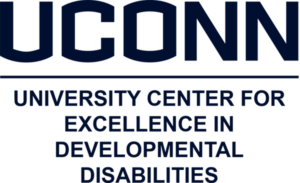What’s New? Over-the-Counter (OTC) Hearing Aids

From the AT3 Center Accessibility Training, Technical Assistance, AT Programs – AT3 Center
As of October 2022, individuals can purchase hearing aids directly off store shelves. Stores like Walgreens, Best Buy, Walmart and CVS all will offer or are now offering OTC hearing aids. You will also be able to purchase OTC hearing aids online. OTC hearing aids may be more affordable, but there are a host of questions for consumers to consider before purchasing. OTC hearing aids are approved for adults 18 years of age or older only. They are intended to help adults with mild to moderate hearing loss; not for persons with a more severe hearing loss or more complex hearing-related issues. There is no requirement for a prescription from a physician or a hearing-health-care professional for OTC hearing aids.
A few other important things to know:
- Be aware of the return and warranty policies for the hearing aids. It may take a few weeks before you know if they work for you.
- Many, but not all OTC hearing aids require the use of a smartphone app for setting up, fitting, and tuning the sound. Make sure you know about the ones you’re considering.
- OTC hearing aids can vary widely in terms of added features. Make sure you know about these. Fortunately, some great resources have been created to help guide persons considering OTC hearing aids.
While there are plenty of available OTC hearing aid resources, a couple which may be a good place to start are:
- The Hearing Loss Association of America (HLAA) has a good HLAA print friendly OTC Tip Sheet.
- The American Speech-Hearing-Language Association (ASHA) also has several helpful Q & A documents and resources about OTC hearing aid considerations.
How can the Assistive Technology Act Program in my state or territory help with other kinds of devices or financing for hearing loss? Most Assistive Technology (AT) Act Programs can help individuals try out different AT devices related to hearing loss and other functional limitations. Check to find out contact information for the AT Act Program where you live. For example, most provide demonstration activities where you can go to try out devices like personal sound amplification products (PSAP), assistive listening systems, daily living aids (e.g., vibrating alarm clocks), amplified or text telecommunication devices (including captioned phones and associated signaling devices) to name a few. Most AT Programs also allow you to borrow devices, typically for several weeks, to find out how they work for you at home, work, or school. Most services are available at no cost. Most also have lower-interest financial loan programs with favorable terms that can be used to purchase most types of AT including hearing aids. Several also administer their state’s adapted telecommunications program that can help you get needed devices at low-cost or no cost. Want to find out more? Go to the directory of State/Territory Assistive Technology Programs to find telephone and email contacts, website links and more!
The Assistive Technology Act Training and Technical Assistance Center (AT3/AT3 Center) is a project funded under the grant award #90ATTA0003 by the U.S. Department of Health and Human Services Administration for Community Living (ACL).

